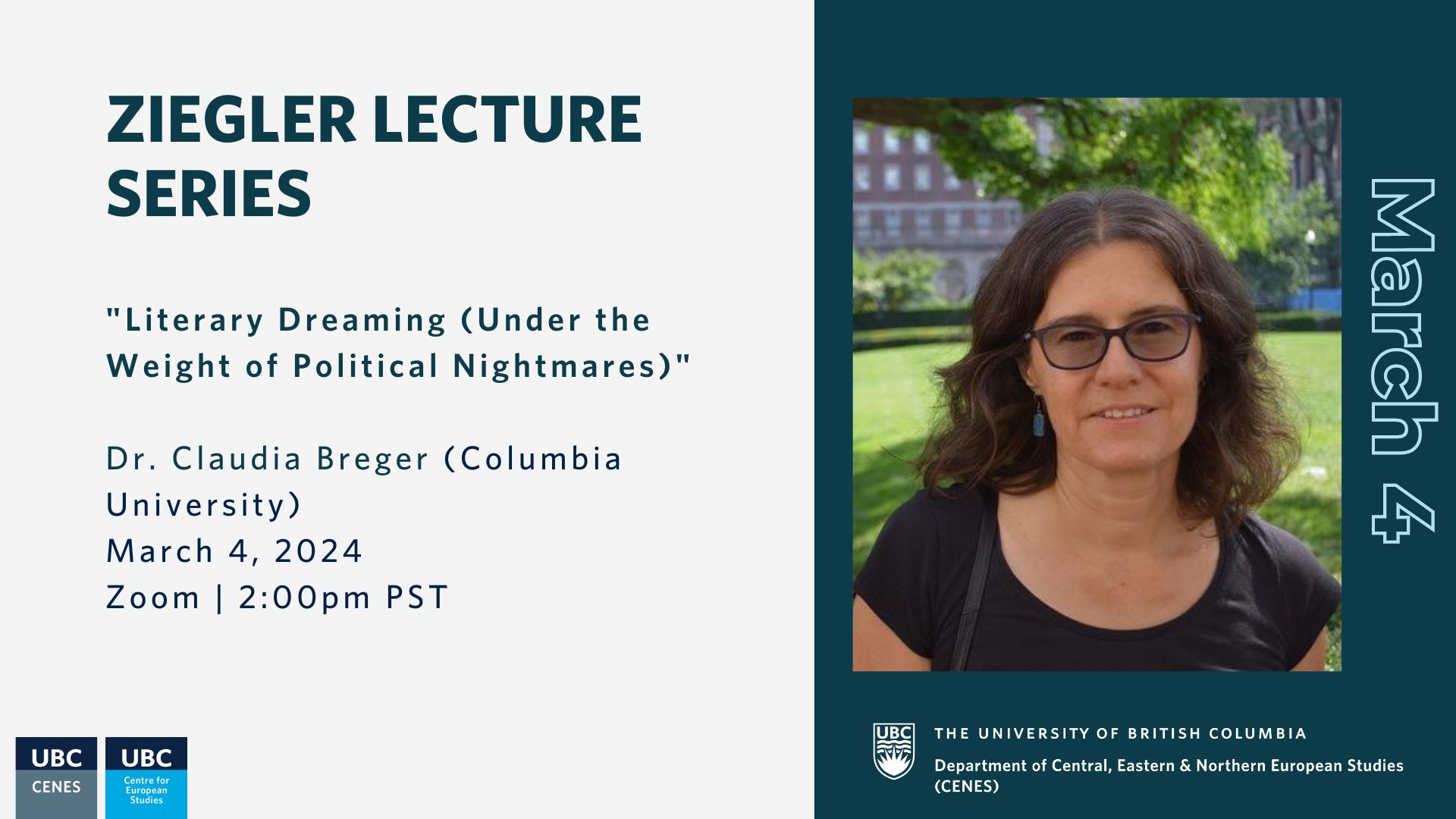
Join us on March 4th at 2pm PT for an online Ziegler Lecture featuring Dr. Claudia Breger (Columbia University). This lecture will be co-hosted with UBC’s Centre for European Studies.
Abstract: Looking at literature and the arts as media of dreaming is by no means a new idea. In modern European aesthetics alone, it has been prominent from Romanticism via Sigmund Freud’s methods of (literary) dream interpretation to Ernst Bloch’s conceptualization of the arts as utopian daydreaming. Recently, though, the conceptual keyword of dreaming has seen a renaissance across the arts and humanities, as a topic of Biennales (e.g., Venice 2022) as well as scholarship in queer studies, radical Black and indigenous theory. This may seem counterintuitive in a historical moment of neoliberal exhaustion, renewed fascism, and planetary exhaustion much more conducive to apocalyptic fear and fantasy. But as I propose in this talk, we can best contour the current resurgence of dreaming in the arts and humanities from precisely this angle, in a two-fold sense. First, the return of dreaming constitutes an explicit countermove towards political hope and futural imagination in the face of political nightmares. Second, it operates as an experimental practice that does not (naively) deny or (miraculously) overcome, but actively includes the negativity of surrounding worlds. As Hengameh Yaghoobifarah puts it in a play on the linguistic overlap of the German words for “dream” (Traum) and “trauma,” the dream factory of literature and the arts doubles as a trauma processing plant (“Traumafabrik,” Ministerium der Träume, 229).
In our ongoing moment of shrinking humanities programs, the renewed interest in dreaming also contributes to the discussion of what literature, film, and the other arts offer towards the goal of reimagining and remaking contemporary worlds. My talk will address these questions in initiating a dialogue between several recent novels from Germany’s literatures of migration and the indicated range of theoretical traditions (mindful of not short circuiting different contexts of historical trauma and political violence).In addition to Yaghoobifarah, I plan to draw on Dinçer Güçyeter’s Unser Deutschlandmärchen (2022) and Emine Sevgi Özdamar’s Ein von Schatten begrenzter Raum (2021). The talk will conceptualize their literary dreaming practices in the encounter of twentieth-century European models of literary dreaming with contemporary work in queer, Black, and indigenous theory.


Watch Claudia Breger’s Lecture Online:
Missed Claudia Breger’s lecture on March 4th? You can access the video and audio recording on UBC’s cIRcle database.